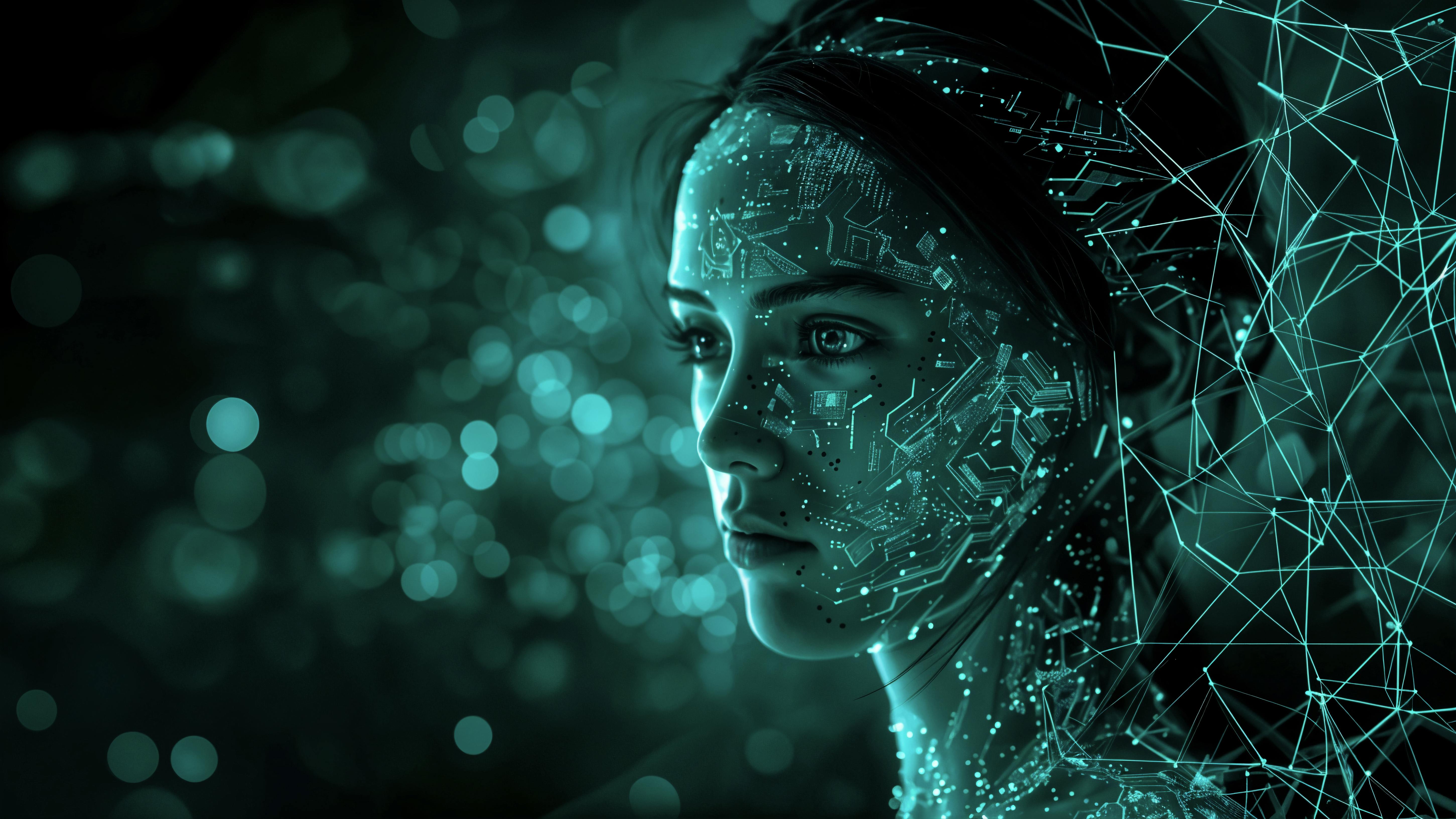Artificial intelligence (AI) is transforming our world at a speed we are struggling to keep pace with. Every day, there are sweeping advances that redefine what we once believed was the limit of what could be done. Yet in this frenzied race, the fundamental question arises: Will AI redefine what it is to be human? And yet more powerfully: Will the future human be augmented by will or by necessity? While others see these questions as possibilities in several centuries but I think it is already tomorrow. At least, possibly in 50 years. But that future is already being made.
AI: Replacement or augmentation tool?
Perhaps the most powerful argument for AI concerns its role in human evolution. Ever since, the technology has been seen as an extension of our ability to work, to think and to solve problems. But today, with advancements like brain implants, brain-machine interfaces and biotechnology improvements, the line between machine and human is becoming fuzzy. It is also important to note that Goldman Sachs has predicted that AI could automate up to 300 million jobs globally. So would we be replaced by AI in most things, or, conversely, would it help us amplify human capabilities tenfold? I believe AI will not only replace some of our human capabilities but augment them.
It will not only do what we can do but open up new things we can not yet do. Think about neural interfaces. The ones Neuralink, Elon Musk's company, is developing. These technologies are not only bringing hope to restore some of the lost functions (such as mobility in paralytics) but also enhancing human mental capacities. Are we ready to embrace these changes?
Will we be able to manage them?
The ethical challenge of human enhancement… But the issue goes beyond simple physical or mental enhancement. There is an ethical consideration which demands our attention. The access to the technologies will not be universal. Who gets to set the standards for augmentation? What will be the social impact when only the wealthy have access to these high-tech technologies, thus creating some form of profound inequality among the people who can afford to "augment" and those who cannot?
I have no doubt that, at some point in the near future, these issues will stop being philosophical abstractions but hard realities that we will have to deal with. Maybe, within a couple of decades, more and more people will "turn away" from human biology to integrate tech-driven enhancements into their lives and redefine humanity in the process. But when will it be normal to become technologically augmented? Will humans turn into a race of performances?
Will we even be capable of speaking of humanity's unity in such a world when individuals have more abilities, or even some form of "super-humanity"?
https://youtu.be/3wP7YE7BvAI?si=NP0xJJvxW3Eu1qki
The restriction of AI: An adaptive imperative or a threat to freedom?
There is also a flip side to this transformation, however. That of restriction. Just as AI presents us with potentials for enhancement, it also presents us with a major challenge: How to become accustomed to a more technified world? We are able to see the impact of AI on many industries, ranging from healthcare to finance. Then in the education sector, etc. It is hard to deny that AI already transforms entire professions.
It is estimated, a McKinsey Global Institute report says, that as many as 800 million workers could be displaced by automation by 2030. The jobs of the future will have to be retrained all the time and most of them will be retrained all the time so that they do not get left behind. This coercion element, this constant pressure to learn new technologies or lose your job, is already being experienced. AI will not have any other choice than to adapt. And if today some specialists freely choose to embrace these developments, how could it be tomorrow when most of us have no other choice than to adapt, or become obsolete?
Is individual freedom at stake as the career of much of our working life becomes dependent on technologies which we have limited control over?
The path to an augmented humanity: Will or compulsion
Thus, the question of human enhancement by AI can be framed as that of choice and that of necessity. We already live in an era when it is crucial that we learn to coexist with technology. And maybe, some decades from now, human enhancement will not be a personal choice but a social and economic imperative. While AI can be a means to progress, it also raises questions of utmost importance regarding the freedom of the individual.
In my vision and my opinion, tomorrow's human will be improved, not by compulsion but by a desire to transgress itself, to battle against biological and intellectual boundaries. This improvement can bring about new forms of human experience, make possible what once would have been utopian.
But this change implies a radical new approach to how we conceptualize the relationship between humans and machines.
Augmented humans: A risk we have to take but one that jeopardizes
The coming decades will fundamentally reshape what it means to be human. Whether it is through physical or cognitive enhancements, or simply through new ways of living and working. The people of tomorrow will likely be altered, either by personal choice or due to societal and economic pressures
The challenge, however, will be one of being able to coharmoniously integrate this technological advancement with human values that are vital: respect, dignity, equality, freedom, justice, fraternity and solidarity. So, yes, AI will redefine what it is to be human. And we must be prepared for this shift. It is no longer a matter of whether or not it will but how we, as human beings and society, are going to opt to embrace it.


